SUMMARY
This is AI generated summarization, which may have errors. For context, always refer to the full article.
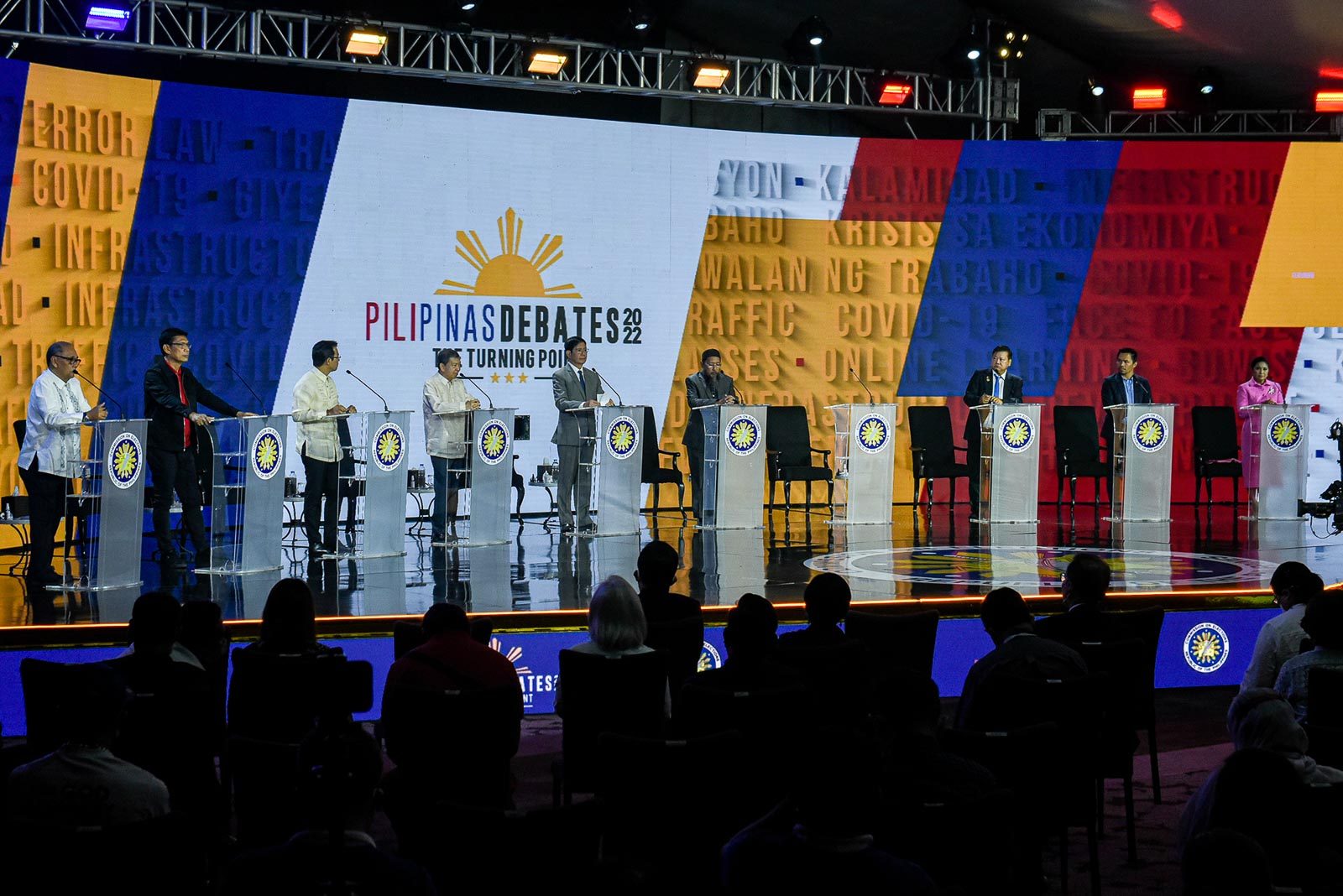
MANILA, Philippines – Three debates into the 2022 election season, presidential candidates have moved to draw up the outlines of a pandemic response that viewed the health crisis as a long-term problem.
For most bets, its solutions require vaccination rates higher than current government targets, bigger investments in local research, and more dedicated funds in the national budget.
Newer ideas from candidates come as countries around the world, including the Philippines, are relaxing restrictions and looking to move into an approach of “living with the virus.” In earlier debates, most aspirants’ proposals hinged on building more health facilities and increasing the salary of health workers – strategies that although were necessary, were viewed by some to be too limited to respond to COVID-19.
During the Commission on Elections (Comelec) presidential debate on Saturday, March 19, when asked if the Philippines was ready to face to another surge, candidates’ responses suggested that most were beginning to operate under the idea that the virus was here to stay.
While cases have fallen in the Philippines, infections have picked up across China, Hong Kong, South Korea, and Europe in recent weeks, partly due to an Omicron subvariant. It’s the latest reminder that the pandemic is not yet over and that countries should stay ready and plan for all outcomes, including more bumpy months ahead.
Priority on vaccines, health standards
To Vice President Leni Robredo, the possibility that Filipinos could face another surge is not far off. “Dapat natuto na tayo sa lessons na nakuha natin in the past two years saka lessons na pinagdaanan ng ibang bansa,” she said.
(We should learn from the lessons we’ve gained from the past two years and the lessons from other countries.)
In ensuring the Philippines was ready, Robredo pointed to the need to double down on increasing vaccinations against COVID-19. This, she said, was the lesson being offered by Hong Kong, where the virus is barreling through communities. The city’s fatality rate from the virus is among the world’s highest, largely due to low vaccination coverage among its elderly population.
The Philippines, where just 58% of the total population is fully vaccinated and 16% are boosted, would remain vulnerable to outbreaks. The government is currently targeting to vaccinate 70% of Filipinos within the month, and 90 million or roughly 80% of the country’s 111 million population by the end of June, though experts have urged the government to push for at least 90%.
For Robredo, vaccination levels are still low. “So ‘yong ang una kong gagawin – sisiguraduhin ko na maabot natin ‘yong targets natin and malampasan pa,” she said. (So this will be the first thing I’ll do – ensure that we reach our targets and surpass it.)
Throughout the health crisis, the Office of the Vice President’s initiatives included swab cab, drive-through vaccinations, teleconsultation services, and free shuttling and dorming for health workers.
Senator Manny Pacquiao, meanwhile, emphasized that keeping minimum health standards in place, including strict mask wearing, would help protect Filipinos should another surge take place. Such health practice would also be crucial as he expressed opposition to placing restrictions on businesses, citing the need to avoid interrupting workers’ livelihoods.
But for the senator, the biggest thing government could do to beef up its response would be to ensure adequate funding for COVID-19 response in the national budget.
“Higit sa lahat, yung budget kailangan magagastos doon sa dapat gastusan” Pacquiao said. (More than anything, the budget needs to be spent on what it necessary.)
In crafting the 2021 budget, much of the P70 billion budget for COVID-19 vaccines was wait-listed, with lawmakers refusing to trim and reallocate certain budget items such as the P19.1-billion anti-insurgency fund – among items that were deemed untouchable, even if their necessity was debatable. For the 2022 budget, the P188.3 billion given to the health department again fell behind funds for other agencies like the P190.6 billion for the Philippine National Police.
Stronger research and development
For Senator Panfilo Lacson, readiness should be done not only for COVID-19, but the next heath emergency.
“It’s not a question of whether the Philippines is ready or not. Dapat lagi tayong handa (We always need to be ready) for the next pandemic – be it Deltacron or whatever variant,” Lacson said in English and Filipino.
To Lacson, readiness comes from more robust research and development, which he vowed to push for by increasing funding for the sector. Labor leader Leody De Guzman voiced similar proposals, citing the need for the Philippines to be able to locally produce its own treatments and vaccines instead of solely relying on trying to access such goods in a tight market.
Lacson also reiterated the need to fully fund the Universal Health Care law, a proposal echoed by Robredo. He likewise backed the proposed establishment of a Virology Science and Technology Institute, citing possible funding from the P982 million worth of land from the Bases Conversion and Development Authority.
Known for keeping an eagle eye on the national budget, Lacson lamented the measly .4% government allocated for research and development. “Pathetic!” was how the seasoned lawmaker described it.
Dedicating more funds for research would aid in the swifter conduct of studies and clinical trials. Throughout the pandemic, several trials and studies conducted by Filipino scientists sought to answer crucial questions on the performance of vaccines, though its implementation had been bogged down by officials needing to locate funds.
To be better prepared for the next outbreak, Lacson also suggested creating a “pandemic playbook” that tracked measures taken in the past two years. “Yan ang kulang natin. Lagi tayong bulag (That’s our weakness. We’re always caught off guard),” he said.
Recalling Manila’s experience, Manila Mayor Isko Moreno pushed to purchase equipment for health facilities and oral antiviral pills like Paxlovid and Molnupiravir to better treat COVID-19 patients. Moreno suggested giving “equal opportunity” and access to better health care as well, referencing his often stated plan to build a modern hospital in every region.
Aside from this, Moreno said his vice presidential pick, social media-savvy cardiologist Dr. Willie Ong, reflected and ensured that his government’s response would prioritize both “lives and livelihood.”
What wasn’t said
But noticeably absent in candidates’ plans were proposals to improve ventilation in establishments and public spaces. Next to masking and vaccination, experts have underscored ventilation as one of the most effective ways to prevent the spread of not only COVID-19, but other respiratory diseases.
Although health officials have increased emphasis on ensuring good air flow, many business haven’t been required to upgrade ventilation, nor has government announced plans to increase investment in the area. The Department of the Interior and Local Government’s Safety Seal, which ensures an establishment is compliant with the minimum public health standards, remains voluntary.
Health experts have repeatedly stressed the need to for government and business owners to adopt a long view in dealing with COVID-19 to avoid becoming stuck in a state of emergency.
Ending the COVID-19 pandemic and ushering the Philippines towards a scenario where the virus can be endemic is among the biggest challenges candidates will face if elected leader of the Philippines in May 2022. – Rappler.com
Add a comment
How does this make you feel?
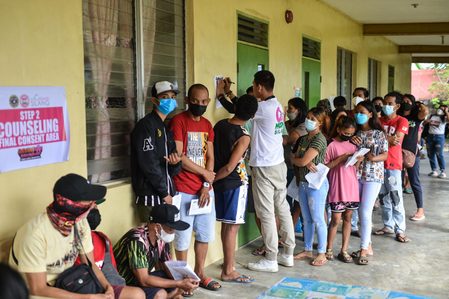
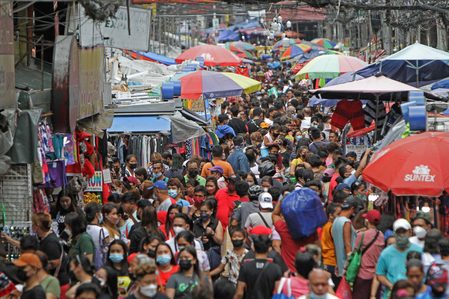





![[Newspoint] Improbable vote](https://www.rappler.com/tachyon/2023/03/Newspoint-improbable-vote-March-24-2023.jpg?resize=257%2C257&crop=339px%2C0px%2C720px%2C720px)
![[Newspoint] 19 million reasons](https://www.rappler.com/tachyon/2022/12/Newspoint-19-million-reasons-December-31-2022.jpg?resize=257%2C257&crop=181px%2C0px%2C900px%2C900px)
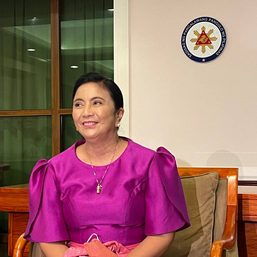




![[New School] Tama na kayo](https://www.rappler.com/tachyon/2024/02/new-school-tama-na-kayo-feb-6-2024.jpg?resize=257%2C257&crop=290px%2C0px%2C720px%2C720px)
![[Only IN Hollywood] After a thousand cuts, and so it begins for Ramona Diaz and Maria Ressa](https://www.rappler.com/tachyon/2024/02/Leni-18.jpg?resize=257%2C257&crop=262px%2C0px%2C720px%2C720px)



![[Time Trowel] Evolution and the sneakiness of COVID](https://www.rappler.com/tachyon/2024/02/tl-evolution-covid.jpg?resize=257%2C257&crop=455px%2C0px%2C1080px%2C1080px)



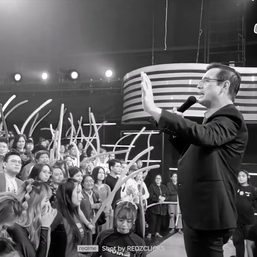
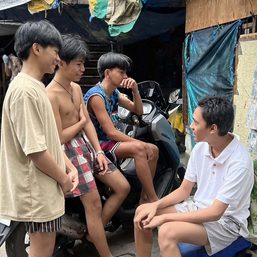
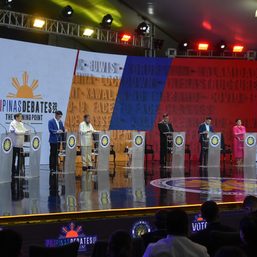
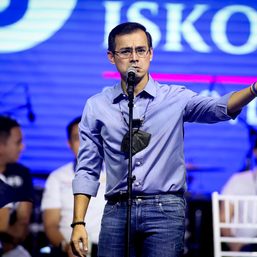
![[OPINION] Sara Duterte: Will she do a Binay or a Robredo?](https://www.rappler.com/tachyon/2024/03/tl-sara-duterte-will-do-binay-or-robredo-March-15-2024.jpg?resize=257%2C257&crop_strategy=attention)
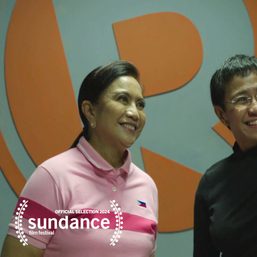
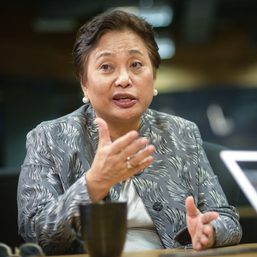

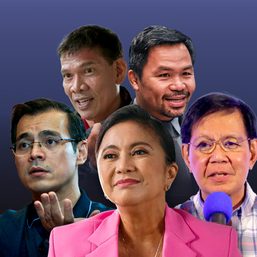
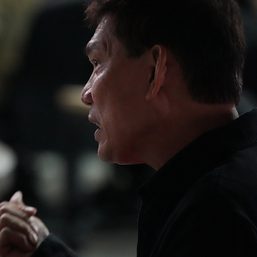
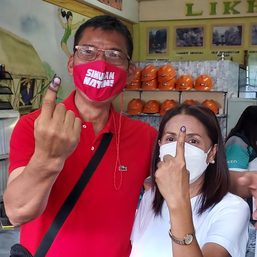
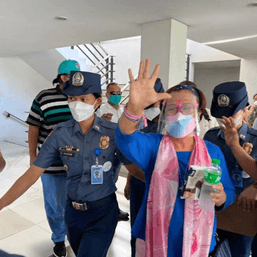
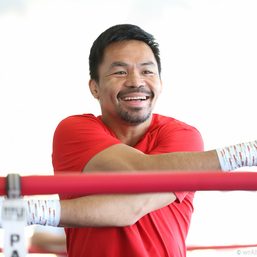
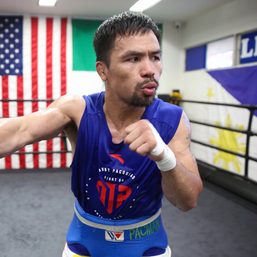
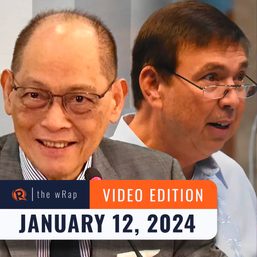

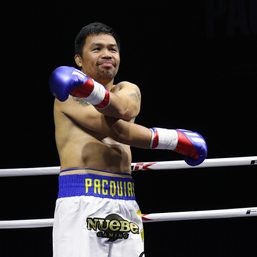
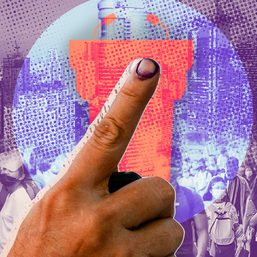
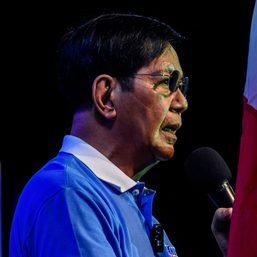
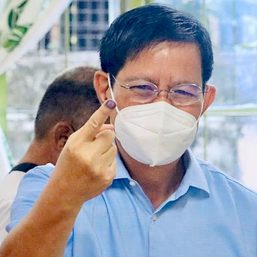
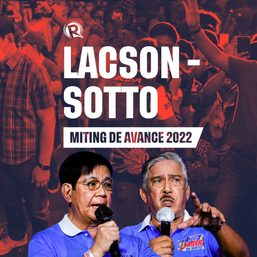
There are no comments yet. Add your comment to start the conversation.